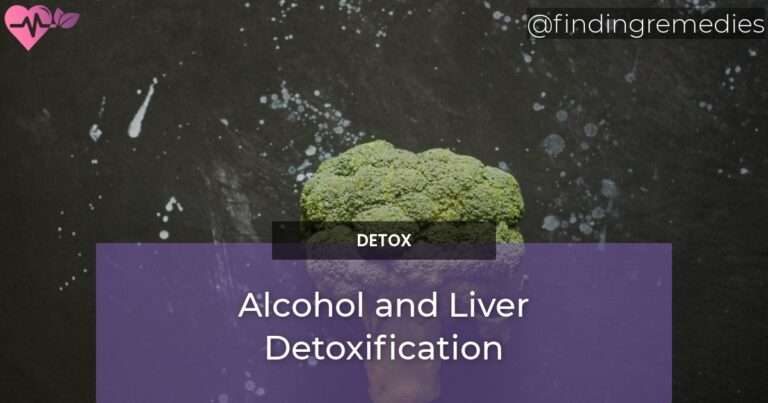Alcohol consumption has become increasingly popular over the years, with many individuals indulging in it regularly. However, alcohol consumption can have a significant impact on liver detoxification, which can lead to liver damage and disease.
In this article, we will discuss the impact of alcohol on liver detoxification, the symptoms and stages of liver disease, prevention, and natural ways to detoxify the liver
Table of Contents
What is Liver Detoxification?
The liver is a critical organ responsible for filtering toxins and harmful substances from the body. Liver detoxification is the process of removing harmful toxins from the liver, converting them into less harmful substances, and expelling them from the body through urine or feces.
How Does Alcohol Affect the Liver?
Alcohol is metabolized in the liver by the hepatocytes, where it undergoes oxidation to form acetaldehyde, which is further converted to acetate. The enzymes responsible for these conversions are alcohol dehydrogenase and acetaldehyde dehydrogenase. Ethanol, the primary component of alcohol, interferes with liver detoxification by decreasing the activity of these enzymes, leading to an accumulation of toxins in the liver. The buildup of these toxins can cause inflammation, leading to liver damage and disease, such as cirrhosis and hepatitis.
What is Alcohol Metabolism?
Alcohol metabolism refers to the breakdown of alcohol in the body. When alcohol enters the body, it is first metabolized in the stomach and small intestine before being transported to the liver. In the liver, ethanol is metabolized into acetaldehyde, which is further metabolized into acetate. This process is dependent on enzymes, primarily alcohol dehydrogenase and acetaldehyde dehydrogenase.
ALSO READ
Symptoms and Stages of Liver Disease
Liver disease is a condition that affects the liver and can lead to significant health problems. Symptoms of liver disease include jaundice, abdominal pain, loss of appetite, and fatigue. There are four stages of liver disease, including fatty liver, hepatitis, fibrosis, and cirrhosis. Fatty liver is the early stage of liver disease that is reversible with proper treatment. However, if left untreated, it can progress to the advanced stages of liver disease.
Prevention of Liver Damage
Prevention is key when it comes to liver damage caused by alcohol consumption. Limiting alcohol intake is the most effective way to prevent liver damage. Other ways to prevent liver damage include:
- Consuming a healthy diet rich in antioxidants and nutrients
- Maintaining a healthy weight
- Avoiding illicit drug use
- Getting vaccinated for hepatitis A and B
Benefits of Liver Detoxification
Liver detoxification has several benefits, including:
- Reduces liver inflammation
- Improves liver function
- Boosts immunity
- Increases energy levels
- Improves digestion
Natural Ways to Detoxify the Liver
There are several natural ways to detoxify the liver, including:
- Incorporating antioxidants such as glutathione, N-acetylcysteine, and betaine into the diet
- Consuming foods rich in silymarin, such as milk thistle
- Increasing water intake to flush out toxins
- Reducing alcohol intake
Role of Diet in Liver Detoxification
Diet plays a critical role in liver detoxification. Consuming a healthy diet rich in nutrients, antioxidants, and fiber can improve liver function and aid in the detoxification process. Foods that are beneficial for liver detoxification include:
- Fruits and vegetables
- Whole grains
- Lean protein sources
- Healthy fats such as omega-3 fatty acids
Conclusion
Alcohol consumption can have a significant impact on liver detoxification, leading to liver damage and disease. Understanding the impact of alcohol on the liver and the benefits of liver detoxification is essential to maintaining optimal liver function. Incorporating natural ways to detoxify the liver, such as a healthy diet and antioxidants, can improve liver function and prevent liver damage from alcohol consumption. It is crucial to limit alcohol intake and practice healthy lifestyle habits to maintain liver health.
RELATED ARTICLES:

